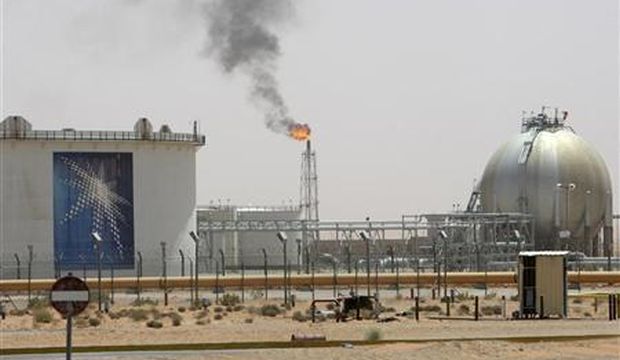
A gas flame is seen in the desert near the Khurais oilfield, about 99 miles (160 kilometers) from Riyadh, in Saudi Arabia, on June 23, 2008. (Reuters/Ali Jarekji)
Riyadh, Asharq Al-Awsat—Saudi oil exports to the US will not be affected by the latter’s recent push to increase domestic oil production, the official spokesman for the US Embassy in Riyadh told Asharq Al-Awsat.
W. Johann Schmonsees denied that the recent boom in the US production of shale oil would affect Saudi oil exports to the US, which he said is hoping to keep its share of Saudi oil exports—currently at 16 percent—unchanged despite recent moves to boost domestic oil production.
Schmonsees maintained that the Kingdom would remain the US’s “main strategic ally” as an oil supplier, pointing out that the Kingdom was currently the second main supplier of oil to the US after Canada.
He said the Kingdom remained one of the US’s most important trading partners—second only to China—with bilateral trade reaching more than 71 billion dollars in 2013, a number the US was looking to increase.
Trade relations between the two countries have been growing at a rate of 17.5 percent since 2011, Schmonsees said, adding that total US foreign direct investment (FDI) to the Kingdom reached 9.7 billion dollars in 2012, and that it has been growing at a 17.5 percent rate since 2011.
Schmonsees also dismissed reports that relations between the two countries had soured in recent years, and maintained that the growing economic ties were an accurate barometer for the state of political relations between the two countries.
